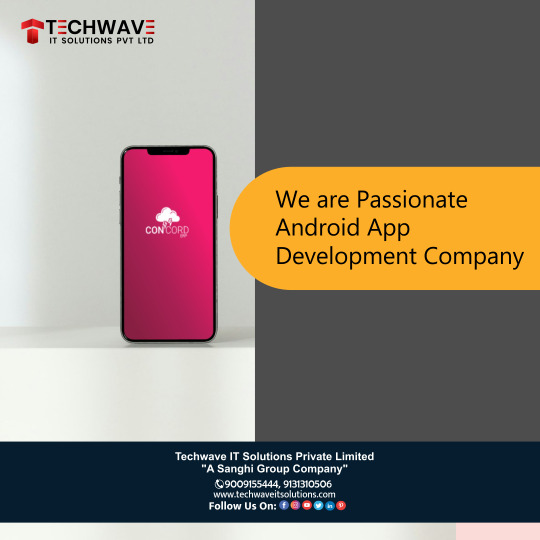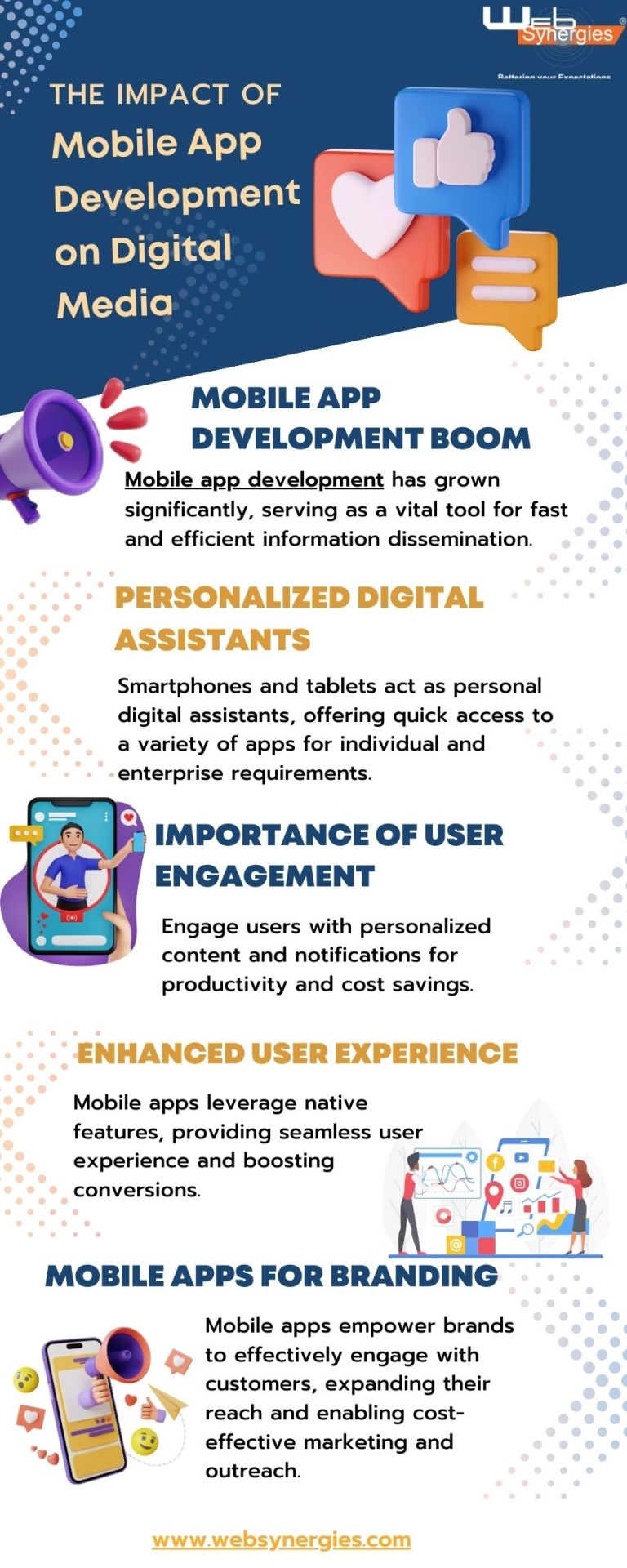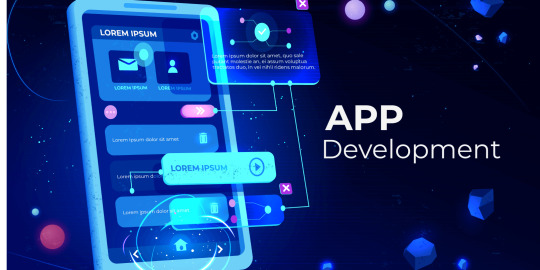#AndroidApplicationDevelopment
Explore tagged Tumblr posts
Text
Exploring the Contrast: Mobile App vs. Web App

In today’s digital age, businesses and consumers interact primarily through applications. Mobile apps and web apps have become essential tools, providing convenience and access to services at our fingertips. However, deciding between developing a mobile app or a web app depends on multiple factors, including usability, performance, cost, and target audience. In this blog, we will explore the key differences between mobile apps and web apps, highlighting their advantages and challenges to help you make an informed decision.
What is a Mobile App?
A mobile app is a software application designed specifically for mobile devices like smartphones or tablets. These apps are downloaded and installed from app stores such as Google Play (for Android) or Apple’s App Store (for iOS). Mobile apps are usually developed for specific platforms (Android, iOS, or Windows) using languages like Swift, Java, or Kotlin.
What is a Web App?
A web app is essentially a website that performs like an app but runs on a browser. Unlike mobile apps, web apps don’t need to be downloaded and installed. They are written using standard web technologies like HTML, CSS, and JavaScript. Web apps can run on any device with an internet browser, be it a mobile phone, tablet, or desktop.
Key Differences Between Mobile Apps and Web Apps
1. Platform Dependency
- Mobile Apps: These apps are platform-specific, meaning they need to be developed separately for Android, iOS, and other operating systems. This often increases development time and costs, but allows for deep integration with the device's hardware, such as GPS, camera, or push notifications.
- Web Apps: Since web apps run on browsers, they are platform-independent. A single web app can function across different operating systems and devices without any modifications. This makes them more flexible and cost-effective for businesses with a broad audience.
2. Performance and Speed
- Mobile Apps: Mobile apps are faster and more responsive because they are built for specific platforms and can directly interact with the device’s resources. They can work offline once installed and offer a smooth user experience, which is critical for resource-intensive applications like gaming, e-commerce, and multimedia streaming.
- Web Apps: Web apps rely on browsers and the internet connection, making them generally slower and less responsive than mobile apps. While modern web apps have come a long way with technologies like Progressive Web Apps (PWAs), they still lag in performance compared to native mobile apps.
3. User Experience
- Mobile Apps: Mobile apps typically provide a superior user experience due to their ability to leverage the full potential of the device’s hardware and software. Customizable features, offline functionality, and enhanced graphics all contribute to a more personalized, intuitive user experience.
- Web Apps: Web apps offer a more uniform user experience across platforms. While their interfaces are often responsive and can adjust to different screen sizes, they may not be as visually rich or feature-packed as mobile apps. That said, they do benefit from not requiring any downloads or updates, making them more accessible.
4. Development Costs
- Mobile Apps: Developing mobile apps can be costly, especially when developing for multiple platforms (Android and iOS). Additionally, maintaining and updating apps across platforms further increases costs. For businesses aiming for high performance and an immersive experience, the higher initial investment may be worth it.
- Web Apps: Web apps are generally less expensive to develop because they require only one version that works across multiple devices. However, web apps may lack some advanced features and performance enhancements that mobile apps offer, especially if you need complex, resource-intensive functionality.
5. Installation and Updates
- Mobile Apps: Users need to download and install mobile apps from app stores. They also need to install updates periodically, which can be an inconvenience for users but allows developers to ensure optimal performance and add new features regularly.
- Web Apps: Web apps don’t need to be installed or updated manually. Any updates made to the web app are automatically reflected when the user accesses the app through a browser. This makes web apps low-maintenance for users but can be a disadvantage for businesses that want to maintain tight control over app distribution and versions.
Advantages of Mobile Apps
- Offline functionality: Many mobile apps can be used without an internet connection.
- Better performance: Mobile apps are generally faster and more responsive.
- Enhanced user experience: Apps can integrate with device features like the camera and GPS.
Advantages of Web Apps
- Cost-effective: Single development for all platforms.
- No installation needed: Easily accessible through a browser.
- Automatic updates: Users always access the latest version.
Conclusion
Choosing between a mobile app and a web app largely depends on your business goals, target audience, budget, and the specific functionalities you need. Mobile apps offer superior performance and user experience but come with higher development costs. Web apps, on the other hand, are more accessible and affordable but may not offer the same level of interactivity and performance.
For businesses that need high-performance applications with offline functionality and device integration, mobile apps are the better choice. However, if you want to reach a broader audience quickly and at a lower cost, web apps may be the ideal solution.
0 notes
Text

We are a passionate Android App Development Company
#AndroidAppDevelopment#androidapplication#androidapp#androidapps#Androidapplicationdevelopment#AndroidApplications#Androidappdesign#androidappsdevelopment#techwave#techwaveitsolutions#consultingcompany#itcompany#indore
0 notes
Text
Creating Success: Your Go-To Partner for Android App Development
Leverage our knowledge of Android Application Development Company to grow your company. We are a top firm that specializes in developing innovative Android apps that advance your brand.

Our skilled developers guarantee a flawless user experience by bringing creativity and accuracy to every project. Trust us to turn your ideas into strong, useful apps from conception to implementation.
Boost your internet visibility and efficiently communicate with your audience. For dependable, customized solutions that stand out in the cutthroat digital market, use our Android application development services. Join us to use our outstanding app development skills to realize your company's full potential.
0 notes
Text
Get Your Business To Mobile Application.

"Explore the differences between web apps, native apps, and hybrid apps to make an informed choice. Udify Technologies offers top-notch app development services."
From concept to launch, our app development services are designed to ensure that your app is built to your exact specifications and exceeds your expectations. Contact Udify today to learn more about our app development services and how we can help you take your business to the next level.
#Udify#udifyTechnologies#bestmobileappdevelopmentservicescompany#mobileappdevelopment#applicationdevelopmentservices#mobileapp#androidapplicationdevelopment#iosapplicationdevelopment#nativeapp#hybridapp#crossplatform#ecommerceapplication#business#UK#USA
0 notes
Text
Develop an Android Application in North Carolina : We AppIt

Introducing We AppIt: Your Gateway to Seamless Android Applications in North Carolina!
Embark on a journey of innovation and efficiency with We AppIt, your premier destination for crafting cutting-edge Android applications nestled in the heart of North Carolina. Our app development prowess merges with the charm of the Tar Heel State, bringing you a blend of technical brilliance and Southern warmth.
At We AppIt, we're more than just developers - we're your partners in transforming ideas into tangible digital experiences. Our expert team thrives on turning your concepts into captivating, user-friendly Android apps that cater to your specific needs and goals. From Raleigh to Charlotte, and beyond, we're dedicated to fostering a culture of collaboration and creativity that ensures your app stands out in the ever-evolving tech landscape.
Join us in sculpting the future of app development, right here in North Carolina. Elevate your vision with We AppIt - where innovation meets tradition, and your app ideas come to life.
0 notes
Text
The Rising Demand for Android Application Development Companies: Techugo's Impact

Explore the escalating demand for Android application development companies and Techugo's significant impact in the market. As a leading Android application development company, Techugo's expertise and innovative solutions cater to businesses seeking high-quality, user-friendly Android apps. Discover how Techugo's services help businesses stay competitive in the ever-growing mobile app landscape.
0 notes
Text
Get Ahead of Your Competitors with Our Android App Development Services
Ensure a scalable and future-proof mobile presence with our Android development solutions. We develop high-quality, user-friendly Android apps that meet your business needs.
#androiddevelopmentservices#androiddevelopmentagency#androiddevelopmentcompany#androidappdevelopmentservices#customandroidappdevelopmentservices#androidapplicationdevelopment#androidappdevelopmentcompany#androidapplicationdevelopmentcompany#androidmobileappdevelopment#androidapplicationdevelopmentservices#androidappdevelopmentagency#androidappdevelopmentsolutions
1 note
·
View note
Text

The rise of mobile app development has revolutionized digital media by providing fast and efficient access to information. Mobile devices, such as smartphones and tablets, serve as personal digital assistants with a wide range of apps, enhancing user engagement through personalized content and instant updates
0 notes
Text
SolGuruz - Best Android App Development Company in India provides affordable Android app development services. To hire Android app developers, Contact Us today.
#android#androidappdevelopment#androidappdevelopmentcompany#androidappdevelopmentservices#solguruz#androidapplicationdevelopment#androidapplicationdevelopmentservices
0 notes
Text
Kotlin for Android Development: An Overview for Developers
Looking for a current, expressive, and clear programming language as an Android app developer? If so, you might want to think about Kotlin, a programming language that is becoming more and more popular among those who create Android apps. The benefits of using Kotlin to create Android app development adelaide will be covered in this blog, along with advice on how to get started.
Kotlin’s advantages for developing Android apps One of Kotlin’s main benefits is that it is compatible with Java, allowing you to use both languages in the same project. As a result, switching from Java to Kotlin is simple because you can start by converting a single class or file at a time. Additionally, Kotlin has null safety features, so you can keep your app from crashing by avoiding common null pointer exceptions.
Another benefit of Kotlin is its concise syntax, which requires less writing of code than Java to accomplish the same functionality. As a result, you can concentrate on the logic of your app rather than the language’s syntax, which can make your code easier to read and maintain.
Additionally, Kotlin has a number of features that can speed up the process of developing apps for you. For instance, it includes support for coroutines, which are small threads that can facilitate the creation of asynchronous code. Additionally, Kotlin has a strong type system that can catch errors at compile time rather than run time and facilitate code refactoring.
Kotlin for Android App Development: Getting Started Installing the Kotlin plugin for Android Studio is required to get started using Kotlin for Android app development. This plugin enables you to create Kotlin files and use Kotlin in your project. You can then begin by either creating new Kotlin files or converting your current Java code to Kotlin.
An online course or tutorial is one of the simplest ways to get started with Kotlin. You can learn Kotlin from a variety of online resources, including the official Kotlin documentation, Google’s Kotlin for Android Developers course, and Udacity’s Kotlin Bootcamp for Programmers course.
To receive assistance and guidance from other Kotlin developers, you can also join the Kotlin community. A community page on the Kotlin website features a directory of Kotlin user groups, activities, and resources.
Conclusion Programming language Kotlin is contemporary, expressive, and succinct, and it’s becoming more and more popular among those who create Android apps. It is a desirable option for app development due to its compatibility with Java, null safety features, clear syntax, and effective development features. You can start using Kotlin to create top-notch Android apps right now by paying attention to the advice and materials offered in this blog.
#androidapp#androidapps#AndroidAppDevelopment#androidapplication#Androidapplicationdevelopment#AndroidApplications#kotlin#kotlinappdevelopment
0 notes
Text
ANDROID DEVELOPMENT

Consider developing a brand-new Android application. You are among friends. The most widely used mobile operating system in the world is Android, which was first introduced in 2003 as an open source project based on the Linux kernel. Over two billion devices already use Android, and there are almost four million apps available from developers. HTC, Huawei, Lenovo, LG, Samsung, and Sony are just a few of the well-known manufacturers who employ Android in their smartphones.
Whether or not you have previous Android programming experience, you are aware that planning may significantly impact the outcome of your project. A seamless start and an effective, productive process are made possible by having the appropriate knowledge and tools.
ANDROID PLATFORM
The Android platform has a wide range of APIs that may help you connect to the cloud and get over the limits of smartphone’s and tablets, which often have less processing and memory capacity than other platforms. You may overcome those constraints by designing your android application to make use of a cloud backend. You may reduce the storage and compute burden on the handheld device by keeping the application's code short and making the greatest number of API calls with services operating in the cloud. Google regularly makes announcements about the release of new APIs that can be used to access cloud services. Variations for various apparatuses: Android gives developers a lot of creative latitude to create apps that make use of cutting-edge technology. Android was primarily created for android mobile devices. (Read More)
0 notes
Text
Exploring the Realm of Application Development: Key Insights and Trends

In today's digital era, application development has become a cornerstone for businesses and individuals aiming to enhance their digital presence. The process of creating software applications, commonly referred to as app development, involves a series of structured steps to design, build, test, and deploy applications that meet specific user needs. This article delves into the essentials of application development, highlighting key trends and best practices in this ever-evolving field.
Understanding Application Development
Application development is the process of creating software applications that run on various devices, including smartphones, tablets, and computers. The process typically involves several phases: planning, design, development, testing, and maintenance. Each phase requires careful attention to detail and a thorough understanding of user requirements.
1. Planning: This initial phase involves gathering requirements, defining the app’s purpose, and outlining its core features. Effective planning ensures that the development process is aligned with business goals and user expectations.
2. Design: In this phase, developers create wireframes and prototypes to visualize the app’s interface and user experience. Design is crucial as it impacts usability and user satisfaction.
3. Development: The actual coding takes place during this stage. Developers choose appropriate programming languages and frameworks based on the app’s requirements. For mobile applications, this often involves platforms like iOS and Android, while web applications may use languages like JavaScript, HTML, and CSS.
4. Testing: Rigorous testing is essential to identify and fix bugs, ensuring the app functions smoothly. This includes various types of testing such as unit testing, integration testing, and user acceptance testing.
5. Deployment and Maintenance: Once the app is tested and refined, it is deployed to app stores or servers. Post-launch, regular updates and maintenance are necessary to fix issues, add new features, and ensure compatibility with new devices or operating systems.
Key Trends in Application Development
The field of application development is continually evolving, influenced by technological advancements and changing user preferences. Here are some of the most significant trends shaping the industry today:
1. Cross-Platform Development: Developers increasingly use frameworks like React Native and Flutter to create apps that work seamlessly across multiple platforms. This approach saves time and resources, allowing for a unified codebase that can be deployed on both iOS and Android.
2. Artificial Intelligence and Machine Learning: AI and ML are transforming app development by enabling more personalized user experiences. Applications can now offer predictive analytics, natural language processing, and advanced image recognition, enhancing functionality and user engagement.
3. IoT Integration: The Internet of Things (IoT) is expanding the scope of application development. Apps can now interact with a wide array of connected devices, from smart home systems to wearable technology, offering users unprecedented levels of control and convenience.
4. Progressive Web Apps (PWAs): PWAs combine the best of web and mobile apps, offering a responsive and fast user experience without requiring installation from app stores. They are gaining popularity due to their ability to work offline and their improved performance.
5. Security: As cyber threats become more sophisticated, ensuring robust security measures in application development is paramount. This includes implementing secure coding practices, data encryption, and regular security audits to protect user data and privacy.
Best Practices for Effective Application Development
To succeed in application development, adhering to best practices is essential. Here are some recommendations:
- User-Centric Design: Prioritize the user experience by conducting thorough user research and usability testing. A user-friendly app is more likely to be adopted and retained by users.
- Agile Methodology: Employ agile development practices to enhance flexibility and enable iterative improvements. This approach allows for continuous feedback and faster delivery of functional features.
- Continuous Integration and Deployment: Use CI/CD pipelines to automate testing and deployment processes, ensuring that new features and updates can be rolled out efficiently and reliably.
In conclusion, application development is a dynamic and integral part of the digital landscape. By staying informed about the latest trends and adhering to best practices, developers can create innovative, secure, and user-friendly applications that meet the demands of today’s tech-savvy consumers.
0 notes
Text

We Develop Sleekest, User-friendly, and interactive Android Apps
#androidapp#androidapps#AndroidAppDevelopment#androidapplication#Androidappdesign#Androidapplicationdevelopment#AndroidApplications#androidappsdevelopment#techwave#techwaveitsolutions#consultingcompany#itcompany#indore
0 notes
Text
Leading Android App Development Services for Your Business Growth
Make the most of your company's potential by utilizing our excellent Android App Development Company. As a reputable Android app development business, we are experts at making cutting-edge, intuitive apps that are customized to meet your specific requirements.

Our skilled development team is dedicated to providing solutions that are successful and of the highest caliber. We guarantee a smooth development process from conception to implementation, giving you an effective instrument to engage your audience.
With our proficiency in Android app development, take your company to new heights. Join forces with us to get dependable solutions that impact the digital world.
0 notes
Link
We are a leading Android app development company that has produced hundreds of cutting-edge apps for a variety of operating systems. Our Android app development team is experienced and skilled, delivering unrivaled apps that are aesthetically pleasing, functionally rich, and business-centric.
#androidappdevelopmentcompany#androidappdevelopmentservices#customandroidappdevelopment#androidapplicationdevelopment#androidappdevelopmentsoftware#bestandroidappdevelopmentsoftware#androidmobileappdevelopmentcompany#topandroidappdevelopmentcompany#customandroidappdevelopmentservices
0 notes